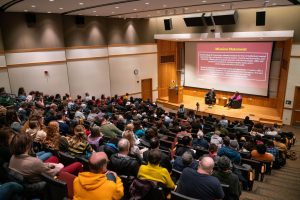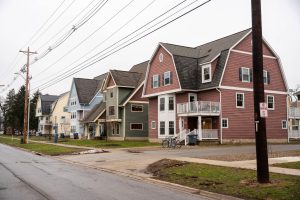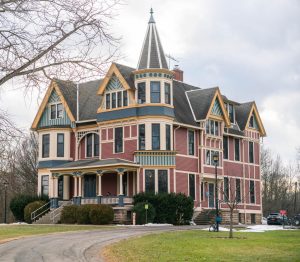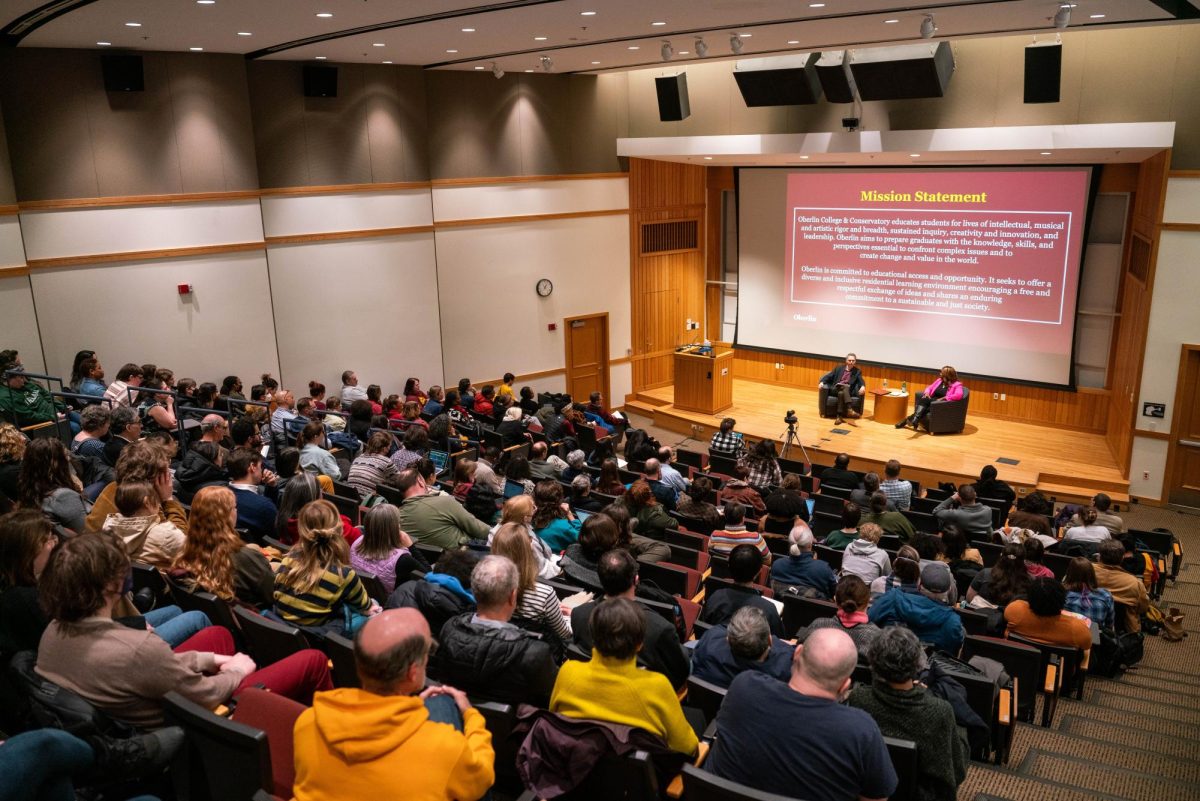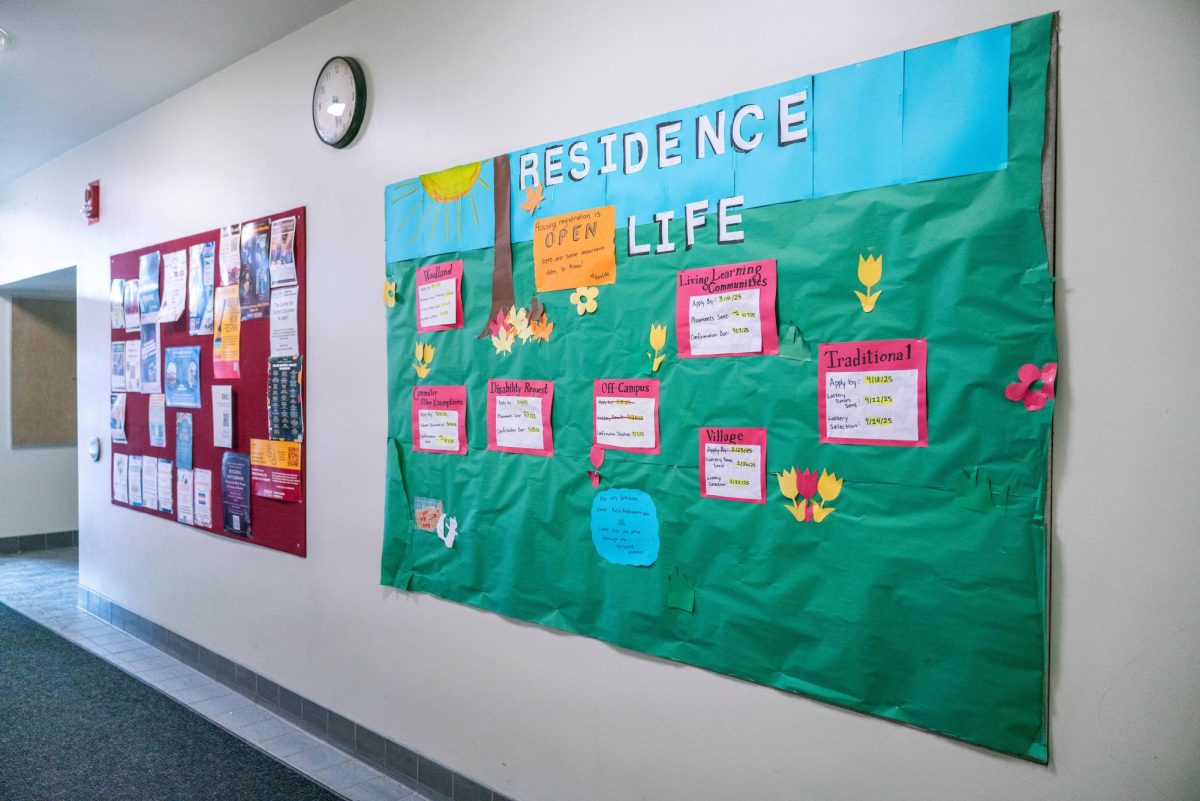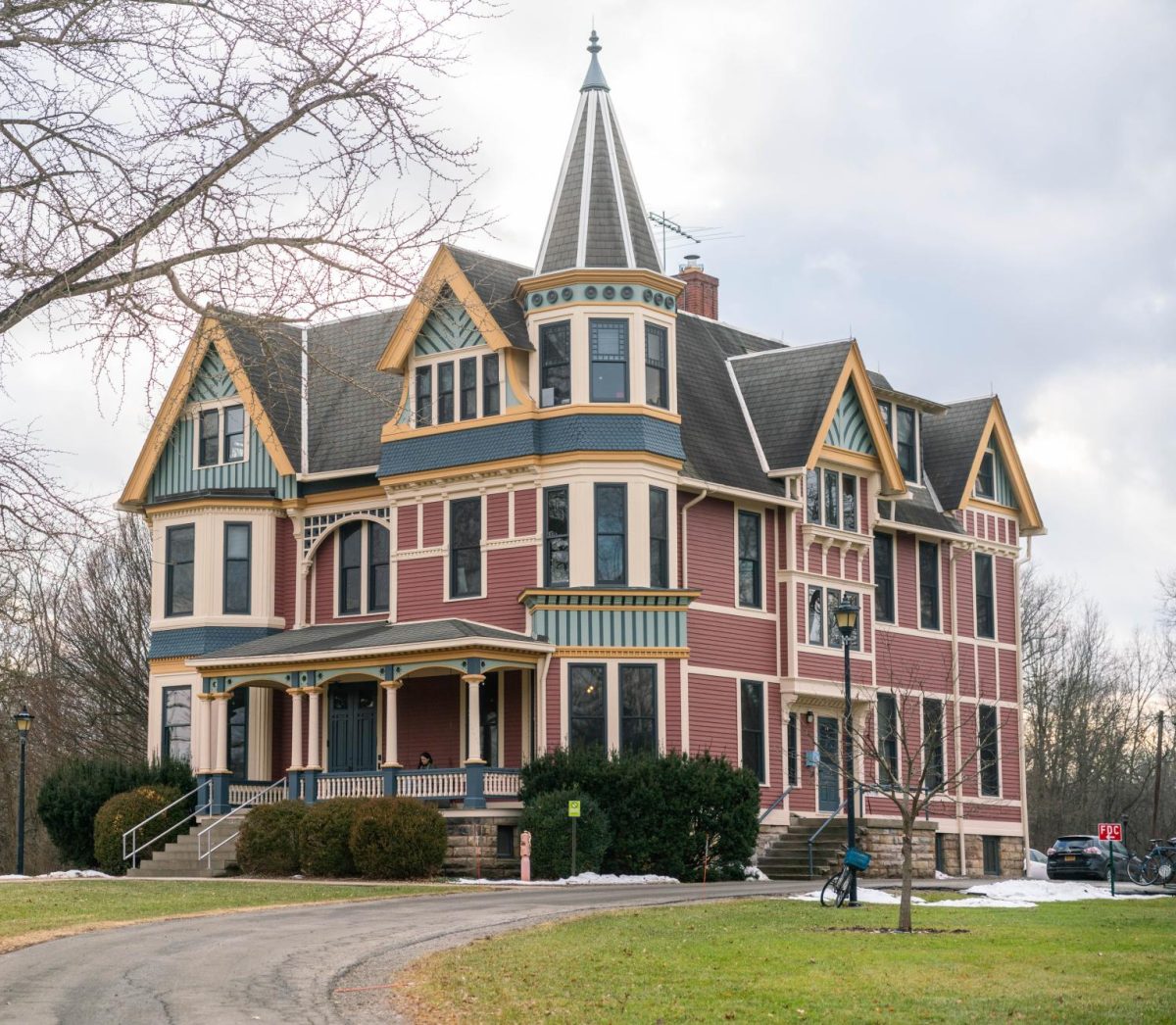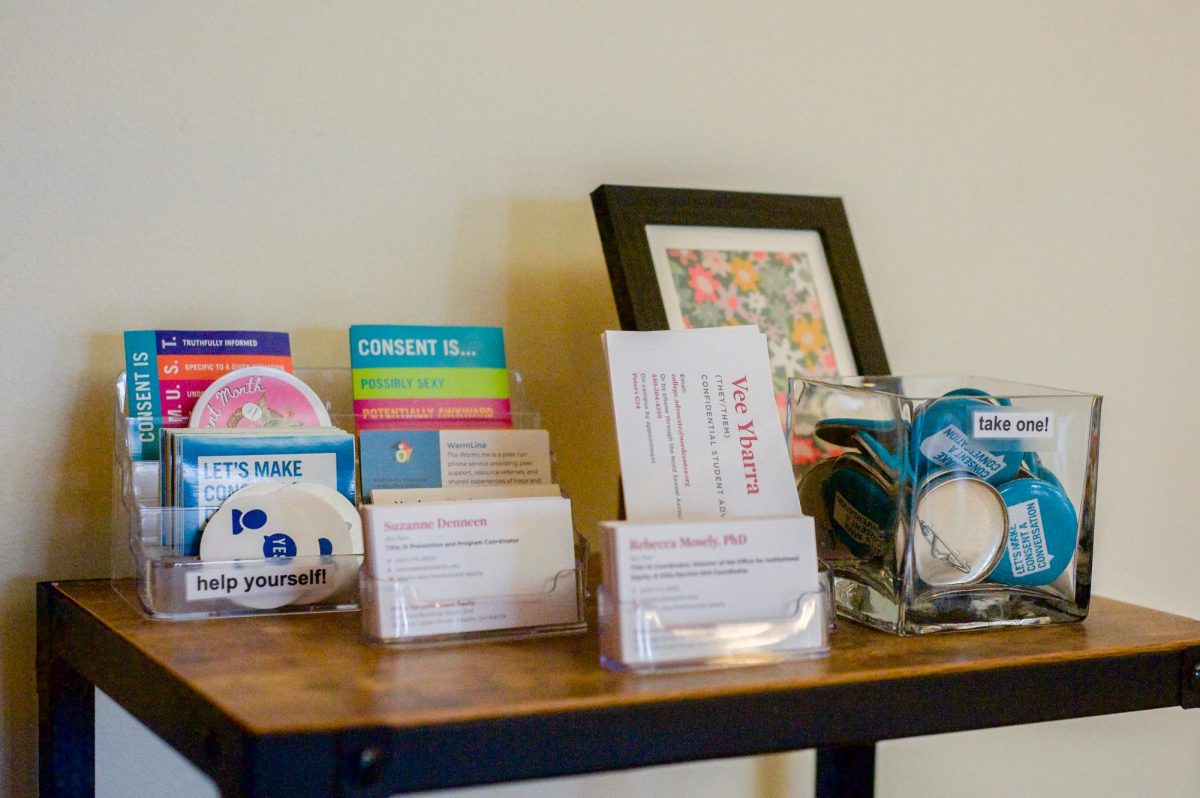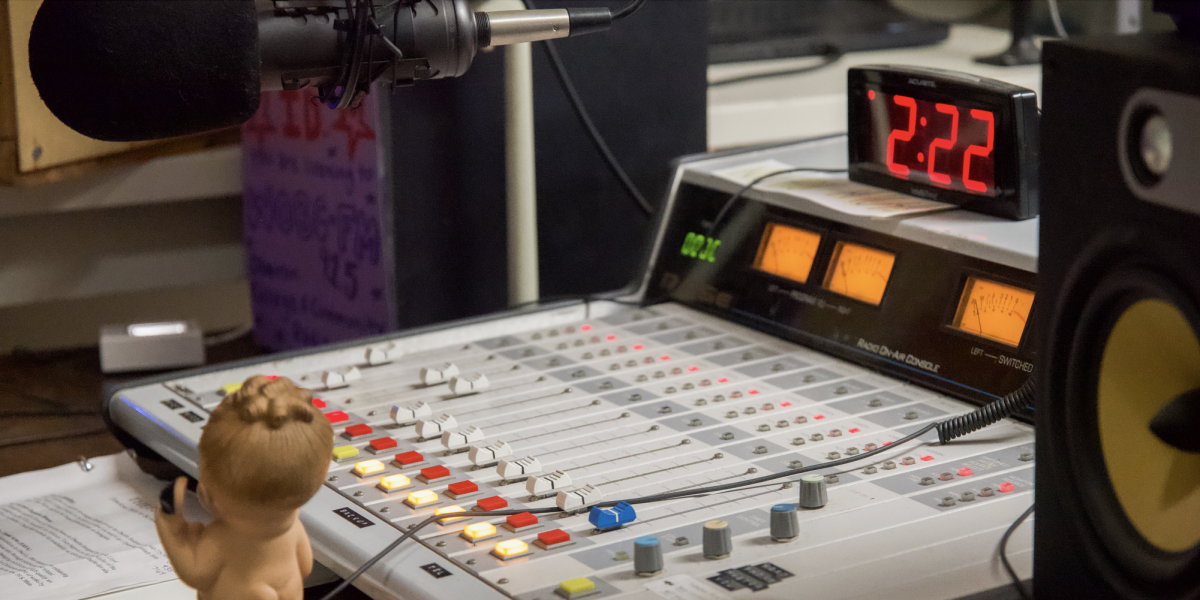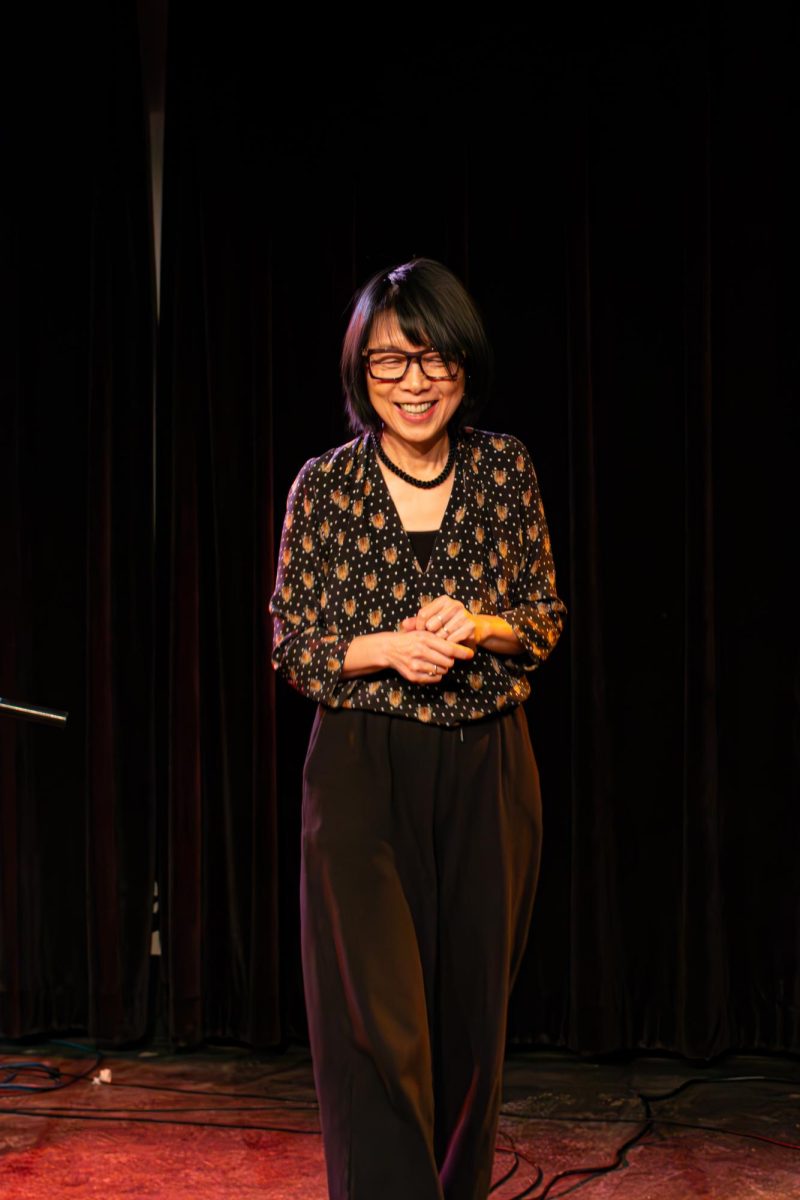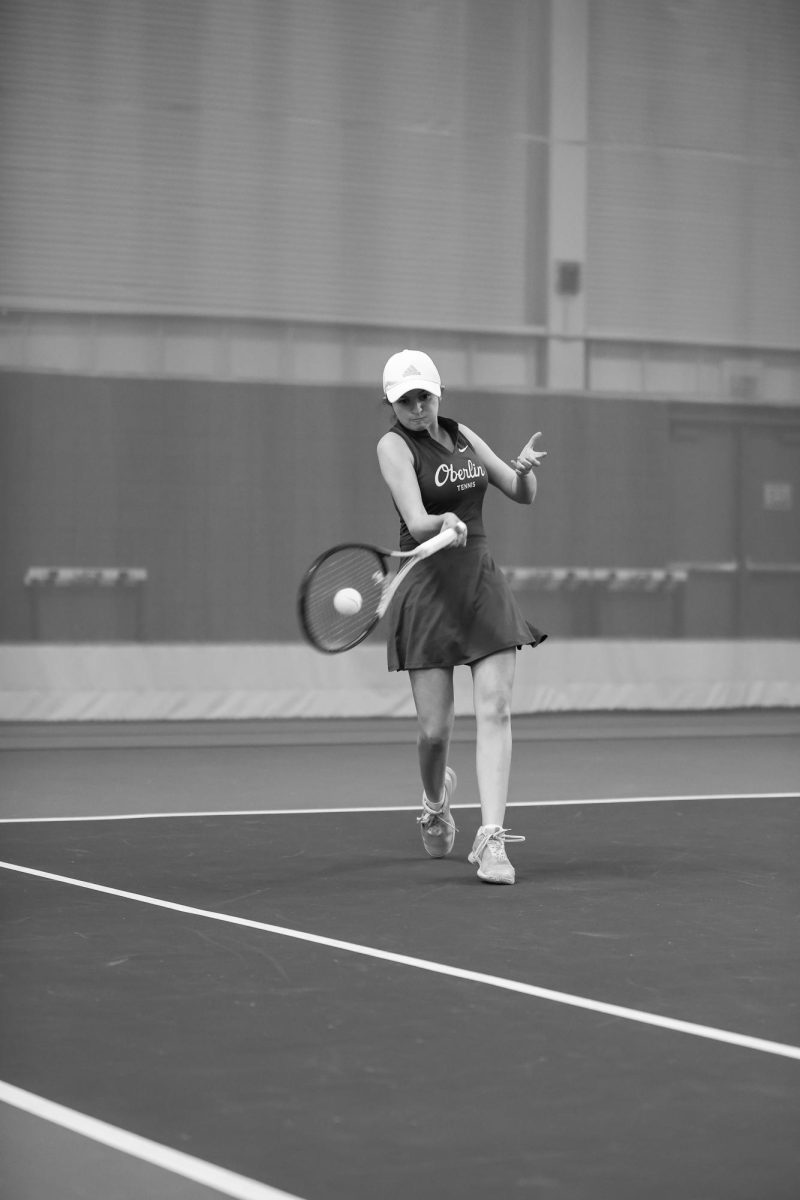Coya White Hat-Artichoker to Give Lecture, Lead Workshop
April 20, 2012
Coya White Hat-Artichoker, a queer Sicangu Lakota — a Native North American identity — will give a lecture in Hallock Auditorium at 4:30 p.m. on Friday, April 27.. The lecture, “Land, Desire and Culture,” will address the LGBTQI movement, particularly in indigenous communities. Hat-Artichoker will also lead a workshop Saturday, April 28 at 11 a.m. in King 123 dealing with the Two Spirit people and their inclusion in the LGBTQI community.
Hat-Artichoker is heavily involved in the inclusion of indigenous peoples in the LGBTQI community and is a founding member of the First Nations Two Spirit Collective, a part of the Roots Coalition that brings together queer people of color groups.
In a recent Huffington Post article regarding her activism and identity, titled “Indigenous, Queer, and Organizing” Hat-Artichoker said, “When I say my people, I mean all the communities I am or have been a part of: Lakota, queer, youth, woman, feminist, bisexual, anarchist, and the list goes on.” This wide spectrum of interests and identities is reflected in the many topics Hat-Artichoker will cover in her lecture, running the gamut from intersectional organization in the queer movement to the importance of solidarity within the racial, reproductive and disability justice movements.
Hat-Artichoker is coming to campus as a part of the Indigenous Women’s Series, one of the longest running lecture series in the College. Dealing with multiple identities and the intersections of movements is a common theme discussed in the series. In the past year it has brought in two speakers: Jessica Yee, who talked about environmental issues and reproductive health, and Michelle Erai, who combined her studies on visual interpretations of the Maori people of New Zealand with the issue of violence against women.
Eli Covarrubias, the assistant director of the Multicultural Resource Center, explained, “Our programs tend to be very comprehensive of a lot of identities and intersectionalities of them because when we live our lives we have to think about everything that is a part of us, and we don’t just think about just one thing that we are. We, when we experience life, when we go through it, we put our whole selves into it. It would be kind of odd living life with one identity in mind.”
The intersectional approach to queer and other rights is a key component of Hat-Artichoker’s activism. Covarrubias feels Hat-Artichoker’s work with indigenous peoples is generally under-represented in the Oberlin community.
“All the movements that happened in the United States, all the things that we’re fighting for, for equality and equitable opportunity, also includes First Nation people; and I think sometimes that community gets forgotten about, and it’s important not to forget,” said Covarrubias. “I just hope that, that even though we don’t visibly see the [indigenous] community here on campus that it is still extremely important to talk about and to educate ourselves and to make sure that we be allies.”



